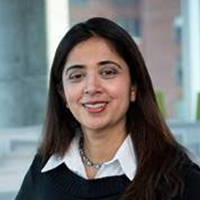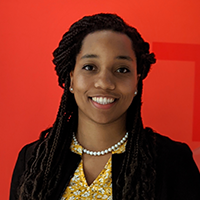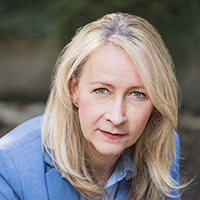2021-2022 Wimmer Faculty Fellows

Distinguished Service Professor of Business Management
Tepper School of Business
Rubab’s project involved investigating the effectiveness of case studies on her students' learning in a first-year ‘Business Leadership Endeavor’ course (part one of a three-part course series). She wanted to know whether case studies were helping students understand course concepts, apply the concepts to real life situations, and develop the skills needed to tackle similar issues outside of the class. With Eberly support, she designed and analyzed pre- and post-course tests/surveys to gauge students’ learning as well as their perceptions of learning. Through the surveys, she learned that students highly valued the case studies and felt that they made it easier to connect course concepts to practical applications beyond the classroom.

Assistant Professor
Heinz College
Felix redesigned assessments in his graduate-level mini course to better serve his students’ backgrounds and learning needs. He redesigned the homework assignments, midterm, and final projects in this course to focus less on technical, quantitative skills and more on conceptual ideas and assessing evidence in research papers. He worked with Eberly to develop a rubric that more clearly explained expectations and which helped him provide higher quality feedback to students on their work. He found that the rubrics reduced students’ questions leading up to the midterm project, and he plans to work on further clarifying rubric details and how students’ grades are earned in future iterations of the course.

Assistant Professor
Civil and Environmental Engineering, Engineering and Public Policy
College of Engineering
Destenie’s goal for her Civil Systems Investment Planning and Pricing graduate course was to introduce activities that integrated social justice into engineering decision making. She developed three highly interactive lessons using games, discussions, and an escape room to get students to experience how different groups of people (often vulnerable, minority populations) are excluded from decision-making that impacts their lives. Through their reflections, Destenie learned that students found the activities highly valuable. In particular, many students reported that the activities gave them insights into perspectives that they had never personally experienced before taking the course.

Assistant Professor, Division Chair of Music Education
School of Music
College of Fine Arts
In Susan’s Diverse Populations in Inclusive Settings course, she developed a pre-, mid- and post-course survey to assess students’ attitudes and levels of knowledge of inclusive music education practices. The survey helped her gauge students’ level of knowledge and identify misconceptions and assumptions about course material, while at the same time providing students a channel to give her feedback on the course so she could adjust. By working with the Eberly Center on her course syllabus and collecting data on student attitudes and learning, Susan will be able to further iterate on her course content and delivery to better meet her objectives and the students’ learning needs.